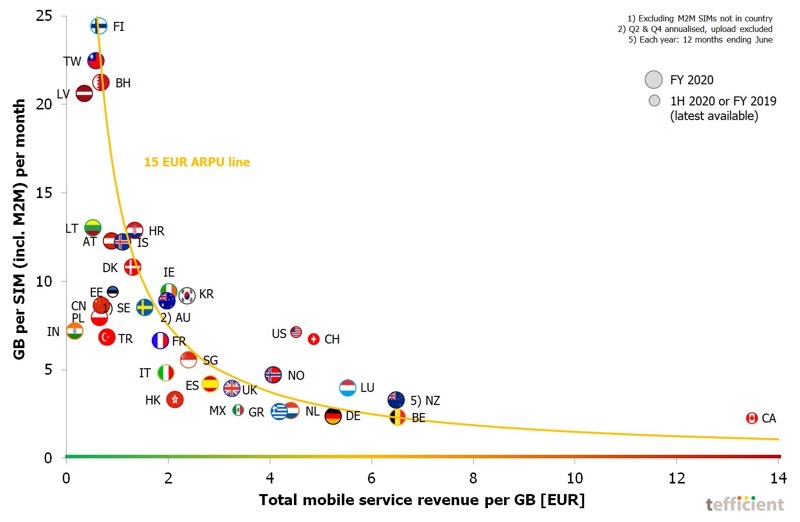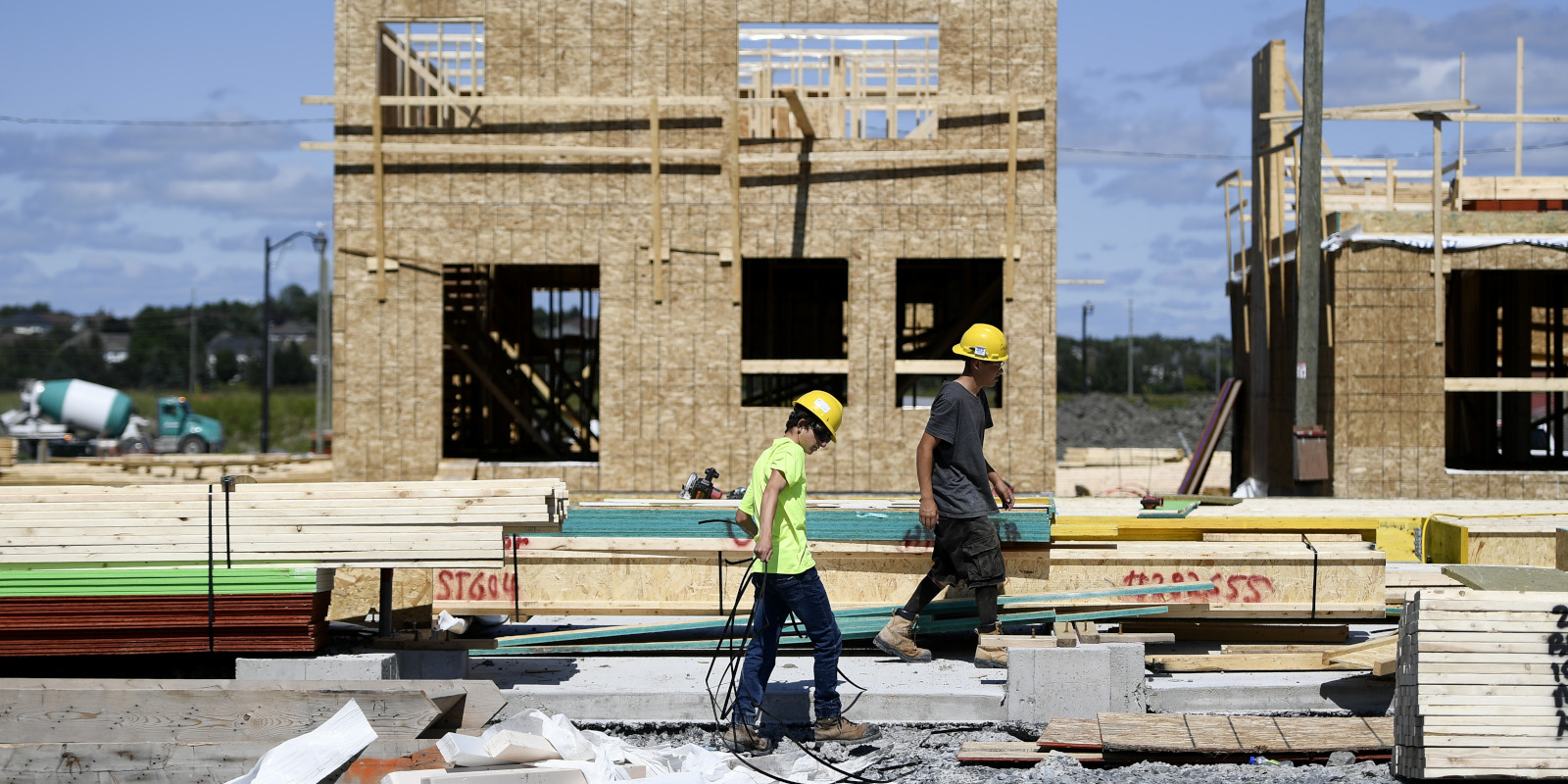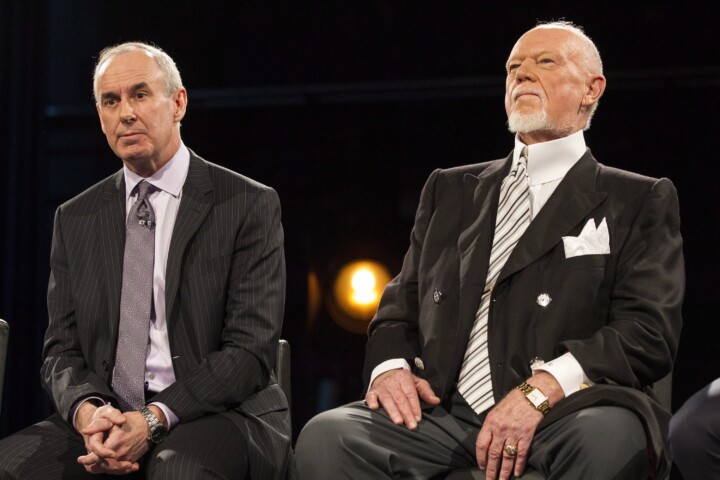Welcome to The Hub’s Federal Election 2021 Policy Pulse, where we’ll be tracking all the policy announcements from the major parties, with instant analysis from our crew of experts.
With the election scheduled for Sept. 20, we’ll be monitoring 36 days worth of policy ideas, so watch out each morning for the day’s live blog where we’ll be tracking every announcement as it happens.
4:00 p.m. — The real magic of new housing is that it frees up old housing
By Chris Spoke, contributor at The Hub
A whopping 84 percent of Canadians say that housing affordability is somewhat or very important to them, according to a new survey conducted by Public Square Research for The Hub, and 80 percent would be happy if housing prices went down.
Housing affordability has emerged as a top issue this election season, and maybe even the top issue for Canadians living in big, expensive cities.
Only 15 percent of those same Canadians surveyed, however, support the idea that governments should help fast-track builders to get more housing built faster. For context, in Toronto, it can take five to eight years to get a development project through the entitlement process, construction, and occupancy.
So what’s the disconnect?
Many Canadians appear to be skeptical of the idea that new market-rate housing contributes to housing affordability for the simple reason that new housing is expensive. After all, it’s new, with (typically) better finishes and amenities.
The real magic, as we know, takes place in the second-order effects, as, for one thing, people move into new housing from old housing, freeing up their old housing for new people. Despite the existence of a vast and growing academic literature on the topic, these second-order effects have not yet been fully internalized.
3:00 p.m. — Canada’s spending on education continues to outpace enrolment and inflation
By L. Graeme Smith, The Hub’s content editor
The ongoing federal election campaign is far from the only thing happening in Canada at the moment. Millions of kids are also headed back to school.
And while there may not be much focus on education during the campaign, mostly because it is a provincial jurisdiction (though not like that is a deterrent to the parties these days), it is surely an issue that is still top-of-mind for parents.
A new Fraser Institute report assesses trends in educational spending across the country, finding that despite the oft-repeated narrative of cuts, Canada’s education spending has actually increased in public schools beyond what was required to account for enrolment and inflation.
The study’s authors, Joel Emes, Nathaniel Li, and Paige MacPherson, examine the period from the 2014/15 school year to the 2018/19 school year in this study to find that enrolment in public schools increased by 3.2 percent nationally. After accounting for enrolment and adjusting for inflation, per-student spending saw an increase of 2.6 percent nationally over this period, with per-student spending (inflation-adjusted) having increased in seven of ten provinces.
Newfoundland & Labrador, Saskatchewan, and Alberta were the three provinces who experienced a decline in real per-student spending.
The largest increases were to be found in Nova Scotia at 9.2 percent, Quebec at 7.3 percent, and Prince Edward Island at 5.1 percent.
The authors note that if real per-student spending had remained constant from 2014/15 to 2018/19, total spending would have actually been 3.3 percent lower, rather than the 2.6 percent growth we have seen.
The biggest contributing factor to this total growth in spending was a 13 percent increase in compensation spending over this period, including salaries, wages, fringe benefits, and pensions.
2:00 p.m. — Housing affordability will continue to be a problem if we don’t get serious about the solutions
By Ben Woodfinden, contributor at The Hub
Interesting polling released exclusively by The Hub this morning might help shine some light onto the counterproductive and, at times, actively harmful measures that governments have been taking in recent years to address housing affordability.
Canadians are worried about housing affordability and recognize the issue is ultimately exorbitant house prices divorced from any economic fundamentals. However, while people recognize the problem, the same cannot be said of the solutions. Most Canadians reject proposals that will ultimately help increase supply and get prices under control.
Eight in 10 Canadians say they would be happy if home prices went down, with that number rising to nine in 10 for people aged 18 to 34 years old. Housing affordability also ranks as a top issue for Canadians. In theory this would be the basis for political action and solutions and parties have undoubtedly taken notice.
But while this might sound like good news to housing advocates, it might be something of a double-edged sword. The most popular solutions are ones that will do little to actually reduce prices. Forty percent of Canadians think there should be a tax on unoccupied homes and 45 percent think non-residents should be banned from buying homes in Canada. Thirty-five percent of Canadians are supportive of providing tax credits for home buyers or providing incentives for first-time home buyers. This may explain why the current government has already tried first-time buyer subsidies. The problem of course is that subsidizing demand will not only reduce prices, it may further inflate prices by pumping more capital into the real estate market.
What’s concerning however is that very few Canadians support real solutions. Only 15 percent of Canadians think it’s a good idea to fast-track development and only 18 percent think it’s a good idea to free up existing land to allow more houses to be built. Without increasing supply and density in the urban areas where housing is most in demand, prices are only going to keep going up.
The polling pretty succinctly captures the political conundrum we’re in. We recognize the problem and want solutions, but only support bad policy decisions that do nothing to address the underlying problem. Parties are not ignoring the housing affordability issue so much as giving people what they seem to want to address the problem. Until we see more widespread recognition and support for more building and increasing supply, housing is likely to remain a problem without serious solutions.
1:00 p.m. — Canadian cellphone bills are extremely expensive
As we’ve previously noted on Policy Pulse, Canadians pay a lot for mobile data and the Conservative plan announced today aims to lower those prices with increased telecom competition.
Here’s the extent of the problem the party is trying to solve:
A report released this summer from the Sweden-based mobile analytics firm Tefficient found Canada is an extreme outlier when it comes to how much consumers have to pay for mobile data. It is a sobering document for Canadians, emphasizing just how expensive our rates are compared to global averages.
Canadians, in fact, pay the highest total revenue per gigabyte in the world (utilizing data from 2019), at 14 Euros in mobile service revenue per gigabyte, or about $20 CAD. In comparison, most other countries studied paid in the range of zero to seven Euros, or about $10 CAD at the most.

12:00 p.m. — Exclusive poll: A huge majority of Canadians want home prices to go down
By Stuart Thomson, The Hub’s editor-in-chief
Canadians are so worried about housing affordability that even many homeowners would be happy if real estate prices dipped.
Eight in 10 Canadians say they would be happy if home prices went down, with that number rising to nine in 10 for people aged 18 to 34 years old. According to the poll, 60 percent of Canadians own their home, with 33 percent renting and seven percent living rent free.
Liberal supporters are less likely than the average person to want house prices to come down, with only 73 percent saying they would be happy with a drop.
Even though drastically increasing the supply of houses has been pegged by many experts as the solution to the country’s housing woes, Canadians are highly skeptical of more development.
The Conservative plan is ranked most favourably by poll respondents, but its key idea of fast-tracking development and providing incentives for more density is not popular. Only 15 percent of Canadians think it’s a good idea to fast track development and only 18 percent think it’s a good idea to free up existing land to allow more houses to be built.
Forty-seven percent of Canadians like the idea of the government building more affordable housing units. Forty percent of Canadians think there should be a tax on unoccupied homes and 45 percent think non-residents should be banned from buying homes in Canada.
Thirty-five percent of Canadians like the idea of providing tax credits for home buyers or providing incentives for first-time home buyers.
Housing affordability is in the top three issues for 23 percent of Canadians and 84 percent of Canadians say housing affordability is either very or somewhat important to them.
The election campaign has seen the parties repeatedly sparring over housing policy and revisiting the issue with multiple policy announcements.
The Conservative platform, which respondents to the poll rank as slightly better than the other parties, promises to get one million homes built in Canada over the next three years. Conservative leader Erin O’Toole says he will require municipalities receiving federal infrastructure money for public transit to build denser housing near the funded transit.
The Conservative plan would also ban foreign investors who don’t live in Canada from buying a home for at least the next two years.
The Liberals promised to build, repair or preserve 1.4 million homes over the next four years, along with a plan for a “first-home savings account,” which provide a tax-free way for young people to save for a down payment. The Liberals would also double the Home Buyer’s Tax Credit.
The NDP’s plan centers around a plan to build 500,000 affordable housing units over the next 10 years and a 20 percent tax on the sale of homes to people who are not Canadian citizens or permanent residents.
More than half of Canadians who own a home are concerned about a possible hike in mortgage rates and “everyday affordability” has also polled as an important issue in the election.
A third of Canadians rent their homes, with a third of renters having trouble paying their rent and 22 percent finding it hard to find affordable housing in the past two years. Thirty-two percent of Canadians say they’ve had some trouble paying rent recently due to the pandemic.
There is also a significant percentage of renters who either never want to own a home or consider it to be impossible.
Forty-two percent of renters say they will never be able to afford a home and 16 percent say they might buy a home in the next two years.
The number of Canadians who think it’s a bad time for an election is 70 percent, which has been steady over the past week. Liberals are most likely to think it’s a bad time for an election, with 75 percent agreeing with that statement.
This research was conducted with an online survey of 1,500 Canadians on Sept. 1 who were selected from the Maru Voice panel. Although the data have been weighted to reflect the make-up of the country, no estimates of sampling error can be calculated because the respondents originally self-selected for the panel.
11:30 a.m. — Breaking down the Conservative plan for “super EI”
The back-half of the federal campaign is underway, and so far many of the biggest and flashiest issues have received sustained attention, from housing to vaccine mandates to planning for the coming economic recovery.
But digging a little deeper, the Hub’s editor-at-large Sean Speer spoke to Yahoo Finance’s Crisis Management podcast about a Conservative proposal to adopt the little-known “Sahm Rule” in Canada’s EI system. The Tories propose to create a “super EI” that would automatically take effect if a province goes into a recession and sees a 0.5 percent increase in its unemployment rate.
You can listen to the breakdown on the podcast here.
10:30 a.m. — O’Toole announces plan to allow foreign telecoms to compete in Canada
Conservative leader Erin O’Toole was in Ottawa to announce a plan to allow international telecoms to provide services in Canada, provided Canadian companies are allowed to compete in the company’s home country.
The Conservatives also highlighted a promise to connect all Canadians to high-speed internet by 2025 and a plan to promote investment in local wireless and broadband projects.
9:15 a.m. — Trudeau highlights Liberal housing plan in Montreal
Liberal leader Justin Trudeau was in Montreal this morning to highlight his party’s housing plan.
The Liberals want to stop “renovictions” and deter “unfair rent increases,” introduce a rent-to-own program, create a tax-free home savings account for young Canadians and tax vacant foreign-owned homes. The Liberal platform also promises to ban foreign investors from buying residential property in Canada for the next two years.
8:30 a.m. — NDP promises $4.4 billion to modernize public transit
NDP leader Jagmeet Singh was in Toronto this morning promising to spend $4.4 billion to “modernize and expand public transit,” in a bid to fight climate change.
The NDP platform says the emphasis will be on low carbon transit projects, like zero emission buses and electric trains, with a plan to move toward electrifying transit fleets by 2030.
7:00 a.m. — Where the leaders are today
Liberal leader Justin Trudeau will make an announcement at 8:30 a.m. in Montreal.
Conservative leader Erin O’Toole will make an announcement at 10:30 a.m. in Ottawa.
NDP leader Jagmeet Singh will make an announcement about climate change at 8:30 a.m. in Toronto.
Recommended for You

Falice Chin: A tale of two (Poilievre) ridings

Evan Menzies: Calgary at 150: Why is it so hard to celebrate our history?

‘We’re winning the battle of ideas’: Conservative MP Aaron Gunn on young men moving right, the fall of ‘wokeness,’ and the unraveling of Canadian identity

Laura David: Red pill, blue pill: Google has made its opening salvo in the AI-news war. What’s Canadian media’s next move?



